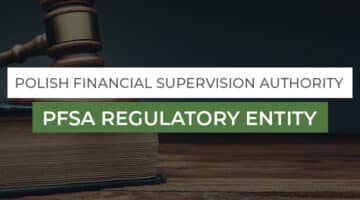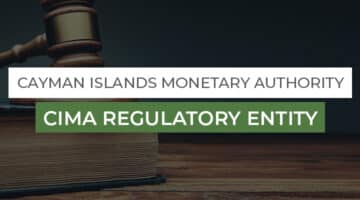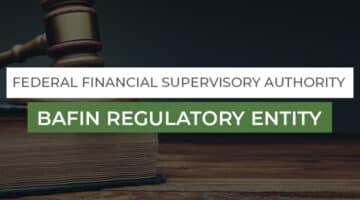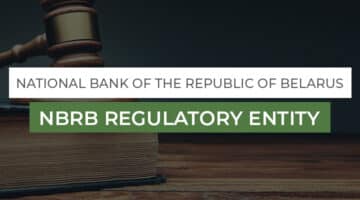JFSA Regulatory Entity

In this article
JFSA, the Japanese Financial Services Agency, is a regulatory body that ensures the financial stability of Japan.
Japan’s Financial Services Agency was established by the Financial Reconstruction Commission in 2000 as a regulatory body. Besides, it was originally developed as an administrative wing of the Prime Minister’s office in 1998.
However, before the reorganization by the FRC, The FSA was only responsible for regulating private financial institutions. It is Japan’s primary financial regulator and includes a duty to combat money laundering and terrorism financing.
Tokyo is the headquarter of the FSA, whose commissioner is directly responsible to a ministerial team and Minister of State for the financial services of Japan.
Whereas Japan has several FSA offices located in the local and regional parts of the country.
Japan’s Financial Services Agency is closely monitoring the country’s financial activities, including cryptocurrency exchanges.
However, the governing authority JFSA is responsible for participation in the resolution of complaints from the clients of the company, auditing firms, and the inspection of commercial banks and brokerage firms is underway, as well as the blocking of their accounts in case of any violation.
In addition, the Japanese financial system is divided into two supervisory tiers: state control and independent self-regulatory organizations.
Also, the forex brokers operating in Japan are required to obtain a license from JFSA and provide appropriate documentation for verification
History
In 2000, the JFSA was established through the reorganization of the Financial Supervisory Agency under the jurisdiction of the FRC. So, this change entrusted the regulatory activities of the Ministry of Finance of planning the financial system to the JFSA.
In 2001, the FSA became an external arm of the Cabinet Office following the reorganization of central government ministries. However, the main task of it is to dispose of failed financial institutions.
In 2019, the FSA warned market participants two weeks before Golden week, which caused the longest market shutdown in Japan’s history. As a result, Japan’s traders‘ absence or reduced number might cause significant market volatility between April 27 and May 6, 2019.

JFSA functions
The Japanese Financial Services Agency, as a financial services authority, oversees banks, insurance companies, trust companies and other obligated financial institutions of Japan.
The agency safeguards and maintains the stability of Japan’s financial system by inspecting and supervising its financial institutions to ensure their compliance with Japanese and international law.
Moreover, JFSA is also responsible for developing new financial legislation in association with the Japanese government.
In addition, because of today’s complex financial markets, it is vital that the JFSA adapts to these challenges and takes effective actions to avoid the threats.
Although, there are three bureaus responsible for the FSA’s regulatory duties:
Strategy development and management bureau
It conducts administrative duties, devises policy strategies and inspects financial institutions.
Policy and Market bureaus
It stimulates market development by defining the FSA’s market policy and developing robust legal frameworks to manage the development of fintech.
Supervision Bureau
It oversees the financial institutions daily.
Besides, those financial institutions that violate JFSA rules will be punished by the regulators. It may include the limitation of operations, financial penalties and even prison sentences for individual violators.
Cryptocurrency regulation
In April 2017, the FSA began accepting applications from businesses that qualify as Virtual Currency Exchangers based on the regulations published in 2016. Following an amendment to the Japanese Act on Settlement of funds from 2009.
However, with ten other exchanges, Coincheck received its Virtual Currency Exchange license in September 2017. As part of the rules, applicants have to disclose organizational information and follow AML and KYC standards.
Following the subsequent thefts at two licensed exchanges known as CoinFinance and Coincheck, the JFSA became more concerned that the Payment Services Act may apply to cryptocurrency regulations rather than financial instruments and Exchange Act.
In addition, due to the Financial Instruments and Exchange Act, entities must keep customer funds separate from house funds. That’s why FSA is helping to guard against the repeat of the Coincheck theft, in which both funds were mixed.
JFSA AML & CFT approach
Japan is a regional and international leader of the Financial Action and Task Force. Whereas FATF is a global organization focused on countering the funding of terrorism and preventing money laundering.
However, the Japanese FSA ensures that the financial institutions comply with the AML & CTF guidelines outlined in the 40 recommendations of FATF. Therefore, Japanese financial institutions must implement screening mechanisms for international sanctions, adverse media, and politically exposed persons (PEP) as part of AML/CFT programs to align with FSA regulations.
Consequently, the financial institutions in Japan must adhere to the FSA regulations by implementing risk-based approaches of AML & CTF. Also, the financial institutions must comply with the screening mechanism for international sanctions, adverse media, and politically exposed persons.
In addition, firms also need to appoint Compliance officers to oversee and manage their internal anti-money laundering compliance programs.
However, Japan will conduct its fourth round of Joint FATF Mutual Evaluation in 2019, which will occur during a plenary session in June 2020.
The JFSA has traditionally taken a forward-looking approach in the fight against money laundering and terrorism financing in Japan. But recently, the main focus of JFSA is on cryptocurrency and cryptocurrency exchanges.
Moreover, after high profile cryptocurrency theft in 2018, the regulator has adjusted the legislation and introduced requirements for exchange licensing.
JFSA products and Services
- Planning and policy-making for the financial systems of Japan.
- Inspect and supervise private sector financial institutions such as banks, brokerage houses, insurance companies and market participants, including securities exchanges.
- Regulation of trading in the securities markets.
- Standardization of business accounting and other matters relating to corporate finance.
- Supervise CPAs and auditing firms.
- Observation of compliance with securities market rules.
Bottom line
JFSA is a Japanese government entity that supervises banking, insurance, securities and Exchanges. Also, the JFSA’s mission is to ensure the financial stability of Japan. As well as the protection of the depositors, insurance policyholders and securities investors.
However, through the Securities and Exchange Surveillance Commission, it is responsible for inspecting, supervising and ensuring transparency in the financial system. In addition, as a part of the board, it oversees the Certified Public accountants and the auditing oversight board.
Jason Morgan is an experienced forex analyst and writer with a deep understanding of the financial markets. With over 13+ years of industry experience, he has honed his skills in analyzing and forecasting currency movements, providing valuable insights to traders and investors.
Forex Content Writer | Market Analyst
Relevant Posts

PFSA Regulatory Entity
[top_three_brokers] The Polish Financial Supervision Authority is known as PFSA. However, it is commonly known…
Read more

CMA Regulatory Entity
[top_three_brokers] The CMA started operating informally in the '50s and kept on working effectively until,…
Read more

CIMA Regulatory Entity
[top_three_brokers] CIMA, the Cayman Islands Monetary Authority, is a primary regulatory entity of Cayman Island…
Read more

BaFin Regulatory Entity
[top_three_brokers] A German Financial Authority, Bundesanstalt für Finanzdienstleistungsaufsicht, is abbreviated as BaFin, known as Federal…
Read more

FMA New Zealand Regulatory Entity
[top_three_brokers] FMA is the abbreviation of Financial Market Authority. The Financial Markets Authority is playing…
Read more

FCA Regulatory Entity
[top_three_brokers] Currently, the Financial Conduct Authority (FCA) regulates the financial services industry in the UK…
Read more

NFA Regulatory Entity
[top_three_brokers] The National Futures Association is a self-regulatory organisation about the industry. It is an…
Read more

FSCS UK Regulatory Entity
[top_three_brokers] Financial Services Compensation Scheme FSCS is a compensation scheme based in the UK. They…
Read more

NBRB Regulatory Entity
[top_three_brokers] NBRB Regulatory Entity (National Bank of the Republic of Belarus) is the Republic of…
Read more

LSE Regulatory Entity
[top_three_brokers] LSE Group (London Stock Exchange Group) is a global provider of financial market infrastructure…
Read more

PFSA Regulatory Entity
[top_three_brokers] The Polish Financial Supervision Authority is known as PFSA. However, it is commonly known…

CMA Regulatory Entity
[top_three_brokers] The CMA started operating informally in the '50s and kept on working effectively until,…

CIMA Regulatory Entity
[top_three_brokers] CIMA, the Cayman Islands Monetary Authority, is a primary regulatory entity of Cayman Island…

BaFin Regulatory Entity
[top_three_brokers] A German Financial Authority, Bundesanstalt für Finanzdienstleistungsaufsicht, is abbreviated as BaFin, known as Federal…

FMA New Zealand Regulatory Entity
[top_three_brokers] FMA is the abbreviation of Financial Market Authority. The Financial Markets Authority is playing…

FCA Regulatory Entity
[top_three_brokers] Currently, the Financial Conduct Authority (FCA) regulates the financial services industry in the UK…

NFA Regulatory Entity
[top_three_brokers] The National Futures Association is a self-regulatory organisation about the industry. It is an…

FSCS UK Regulatory Entity
[top_three_brokers] Financial Services Compensation Scheme FSCS is a compensation scheme based in the UK. They…

NBRB Regulatory Entity
[top_three_brokers] NBRB Regulatory Entity (National Bank of the Republic of Belarus) is the Republic of…

LSE Regulatory Entity
[top_three_brokers] LSE Group (London Stock Exchange Group) is a global provider of financial market infrastructure…

